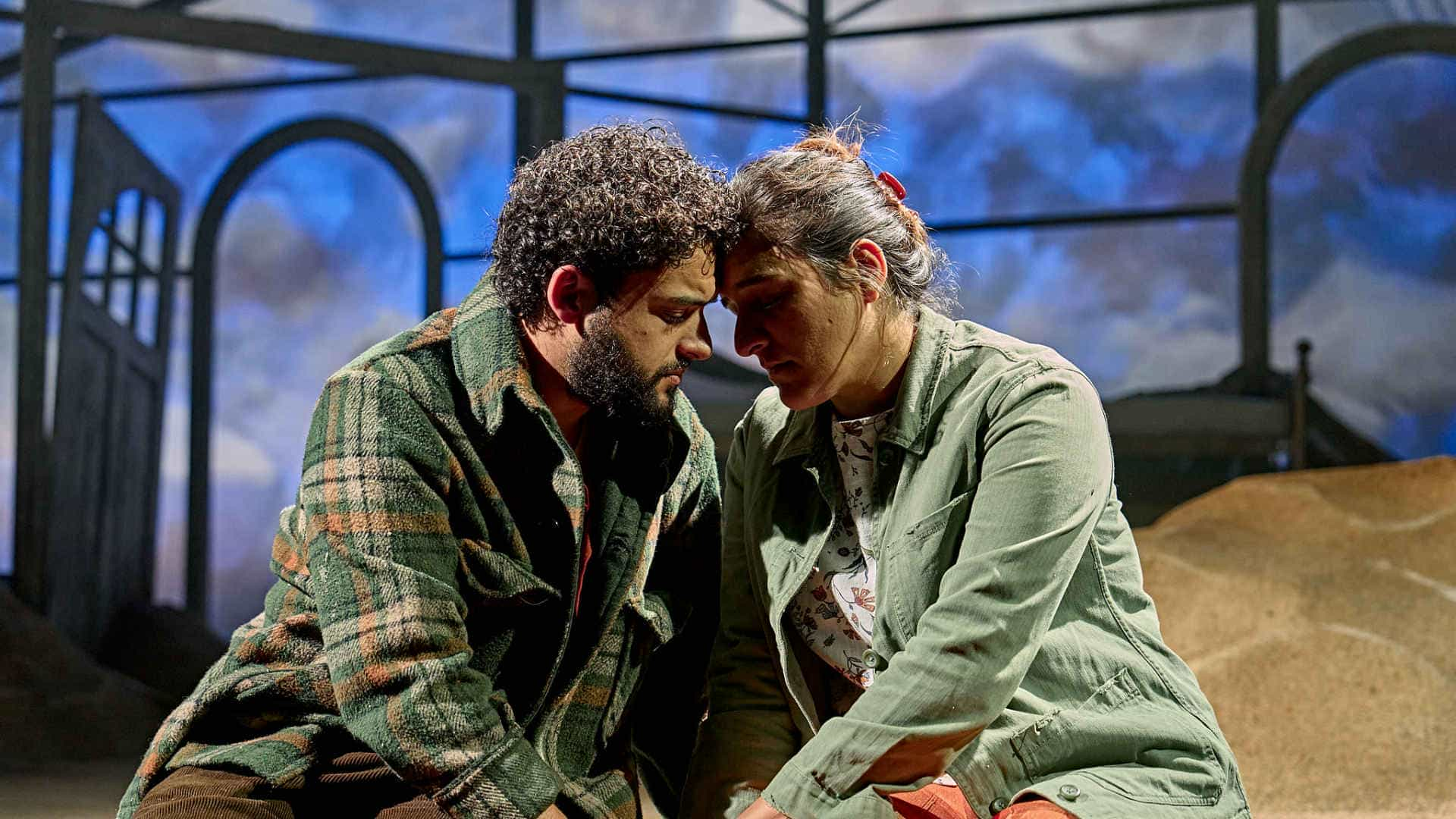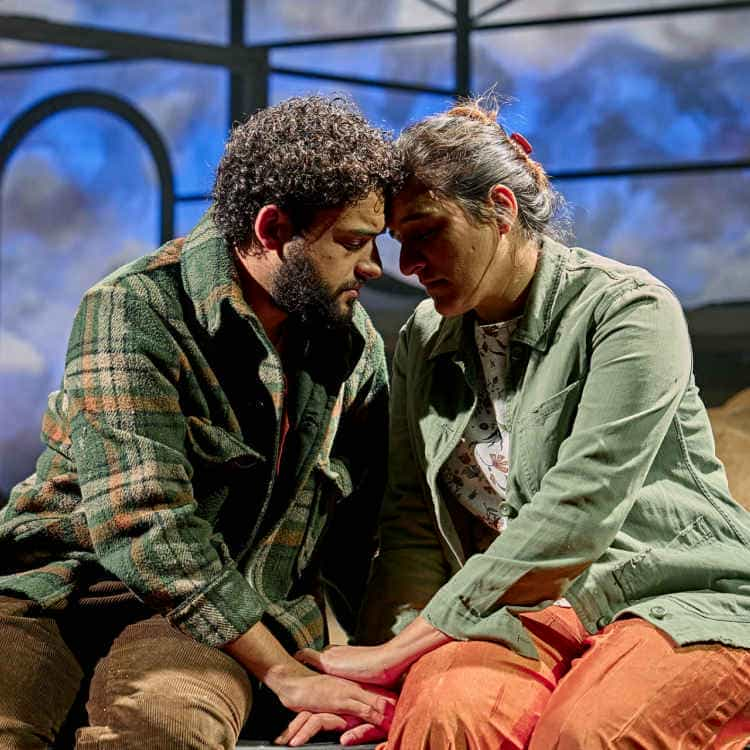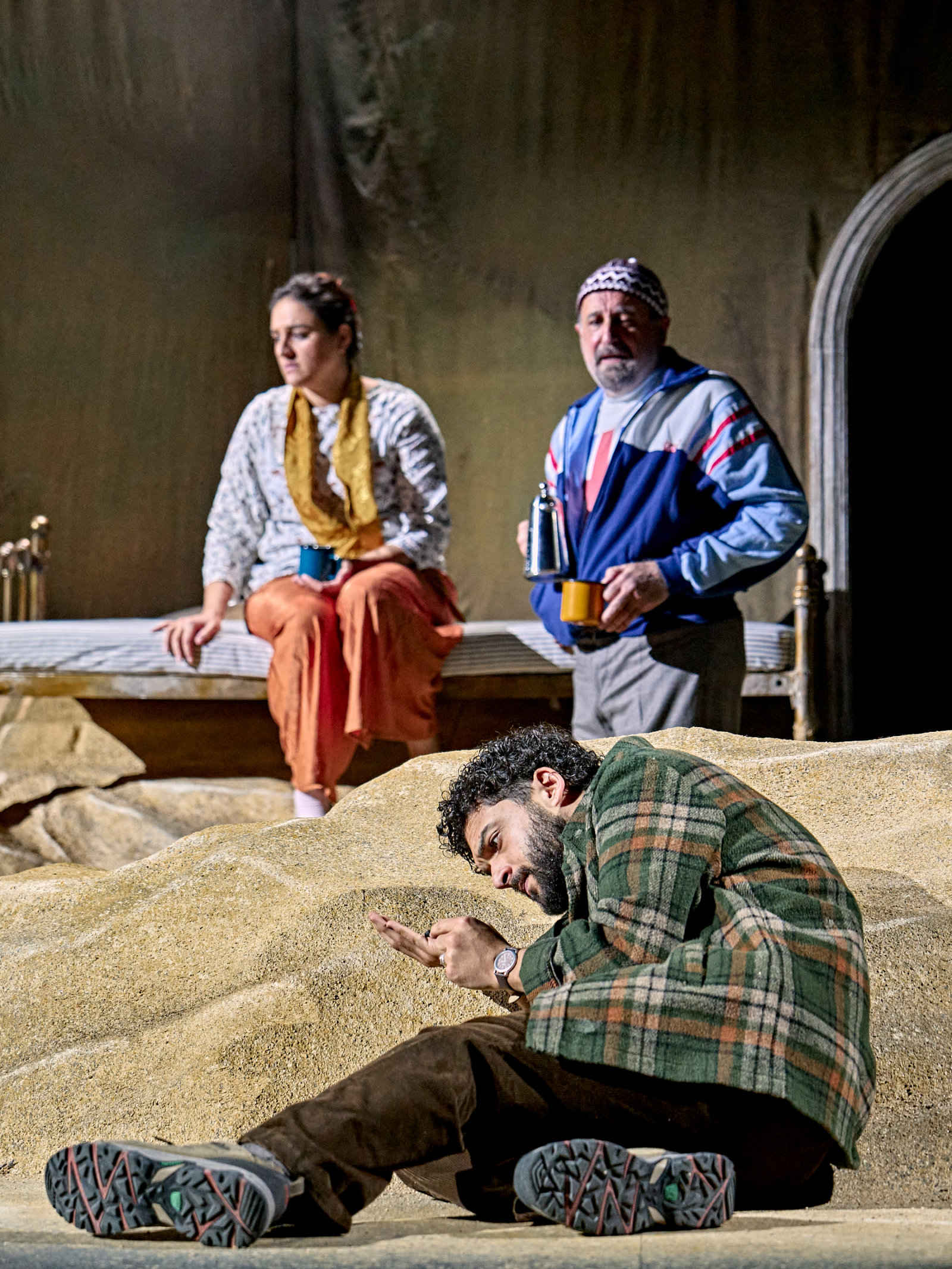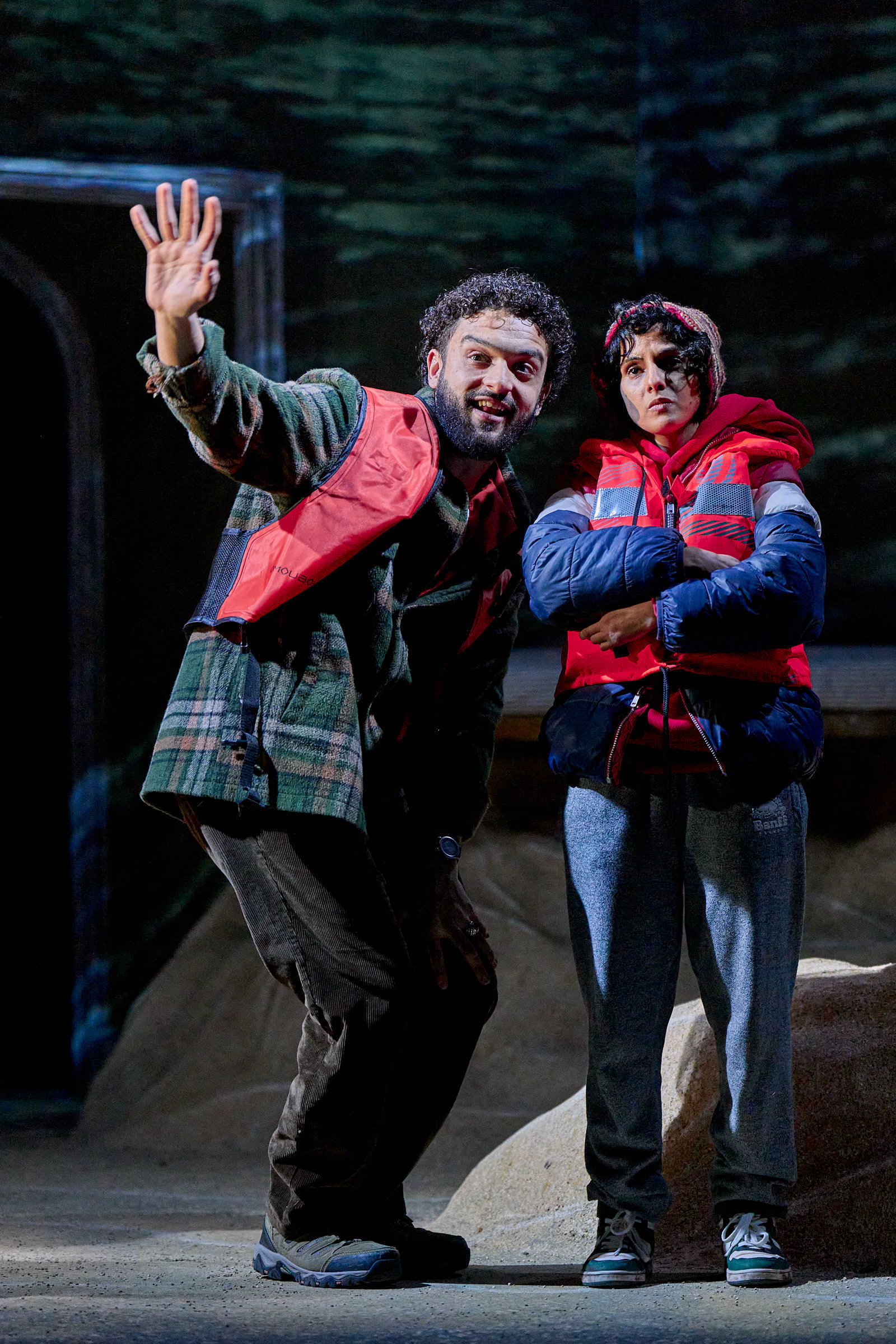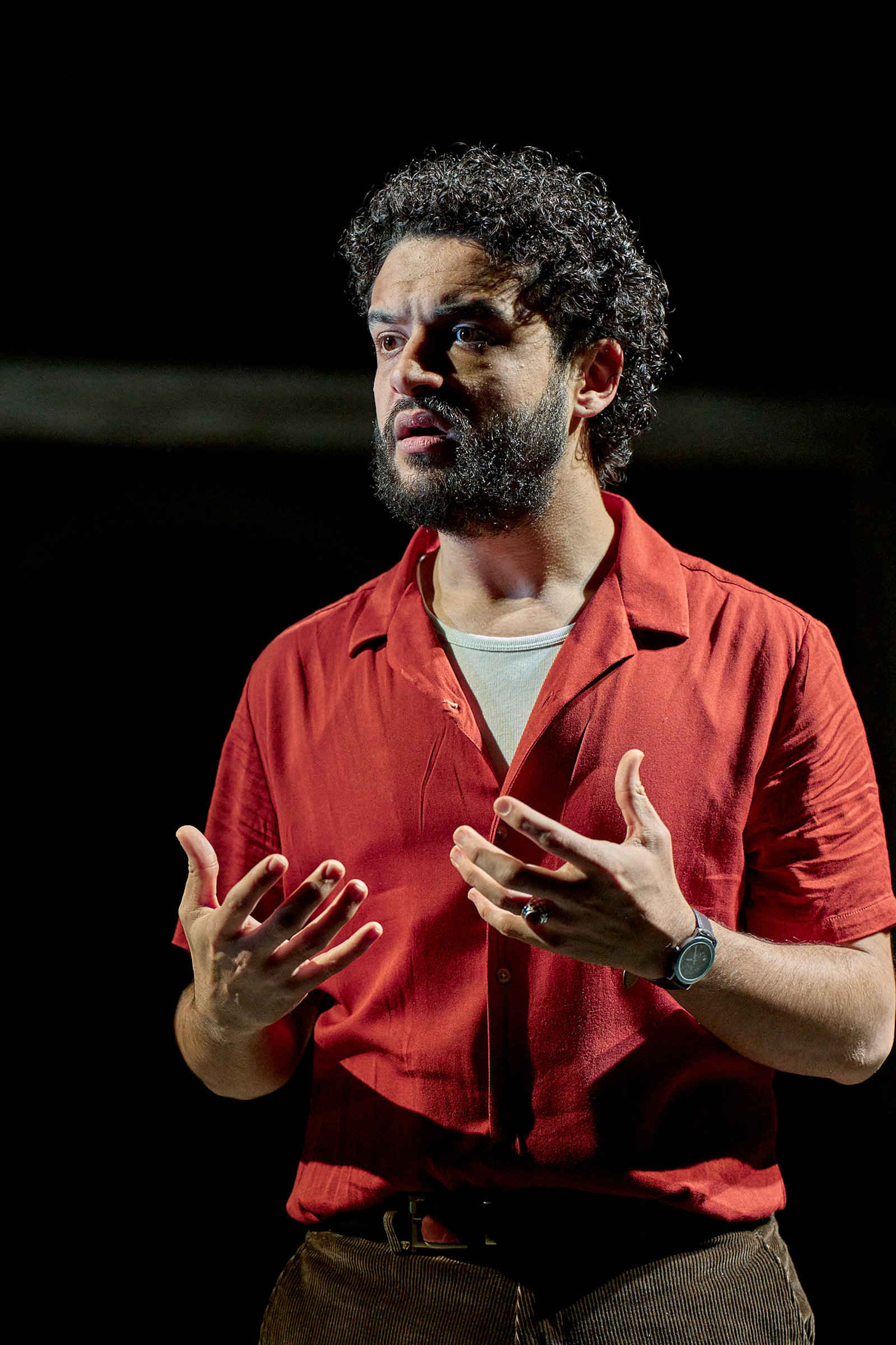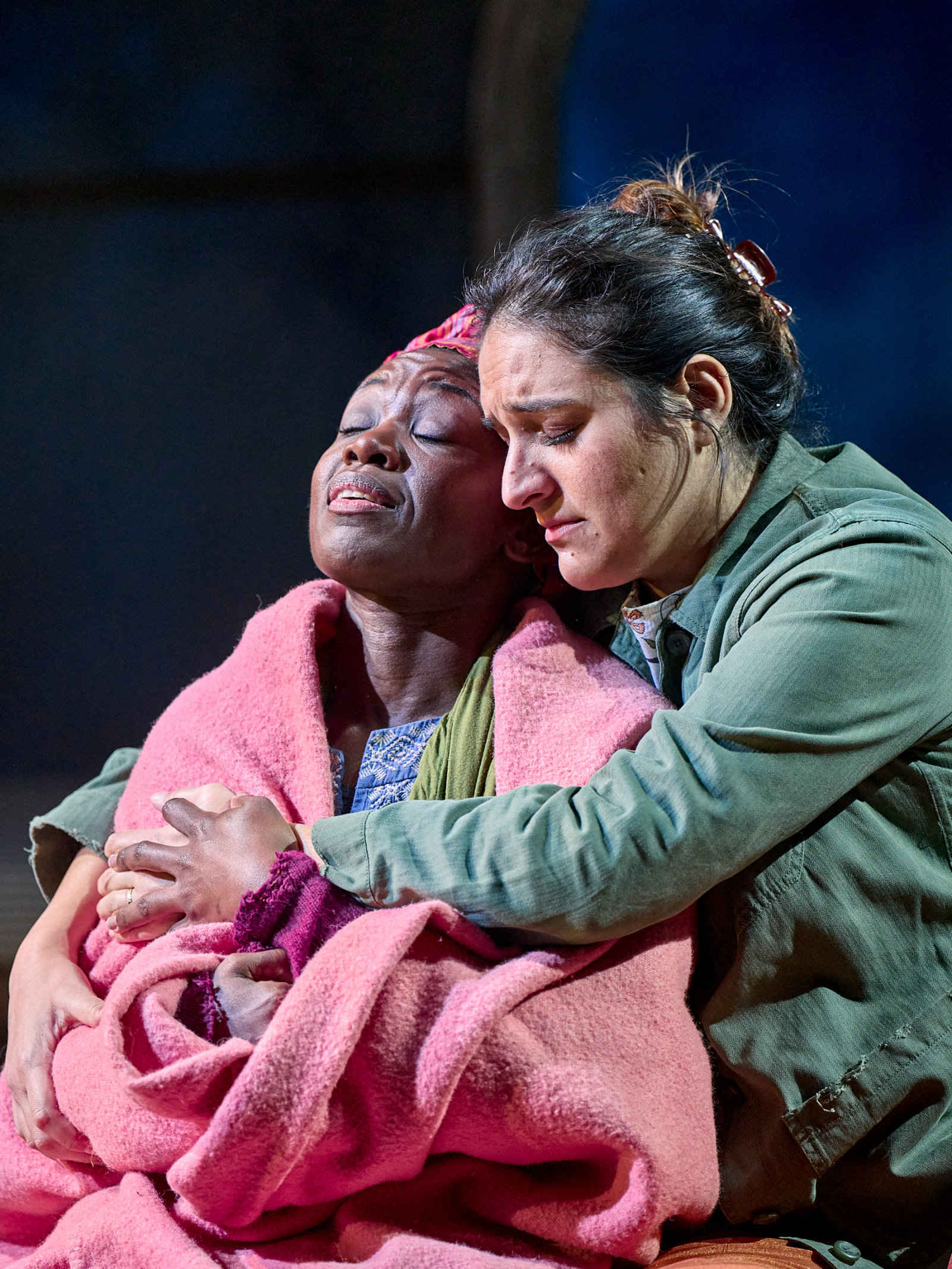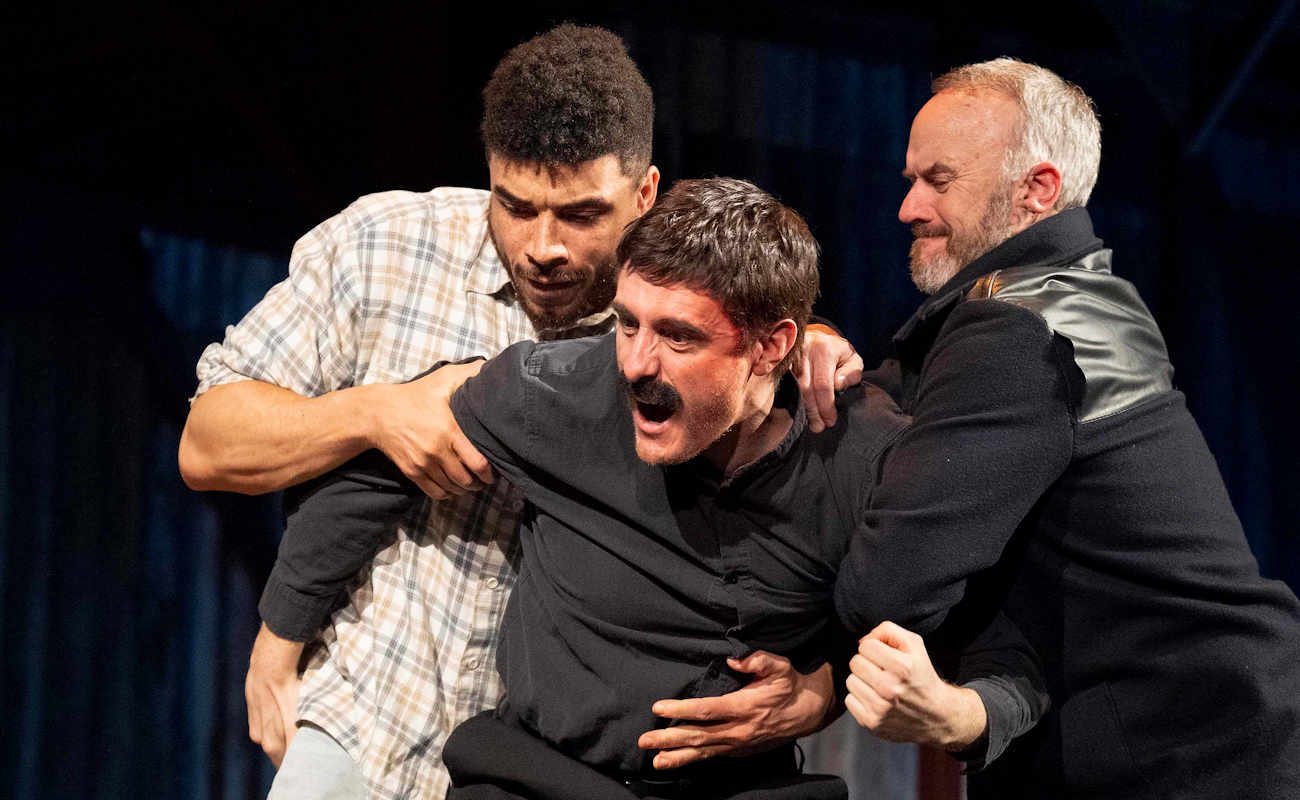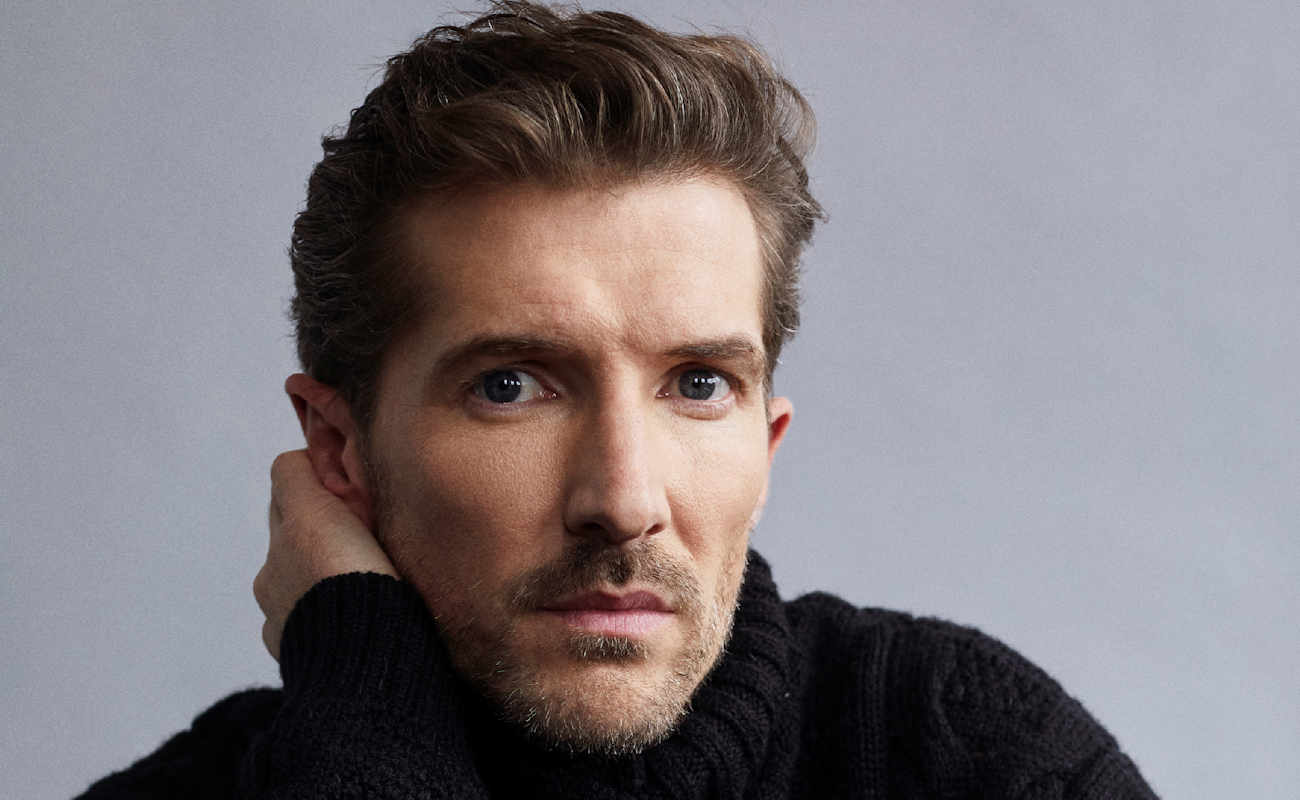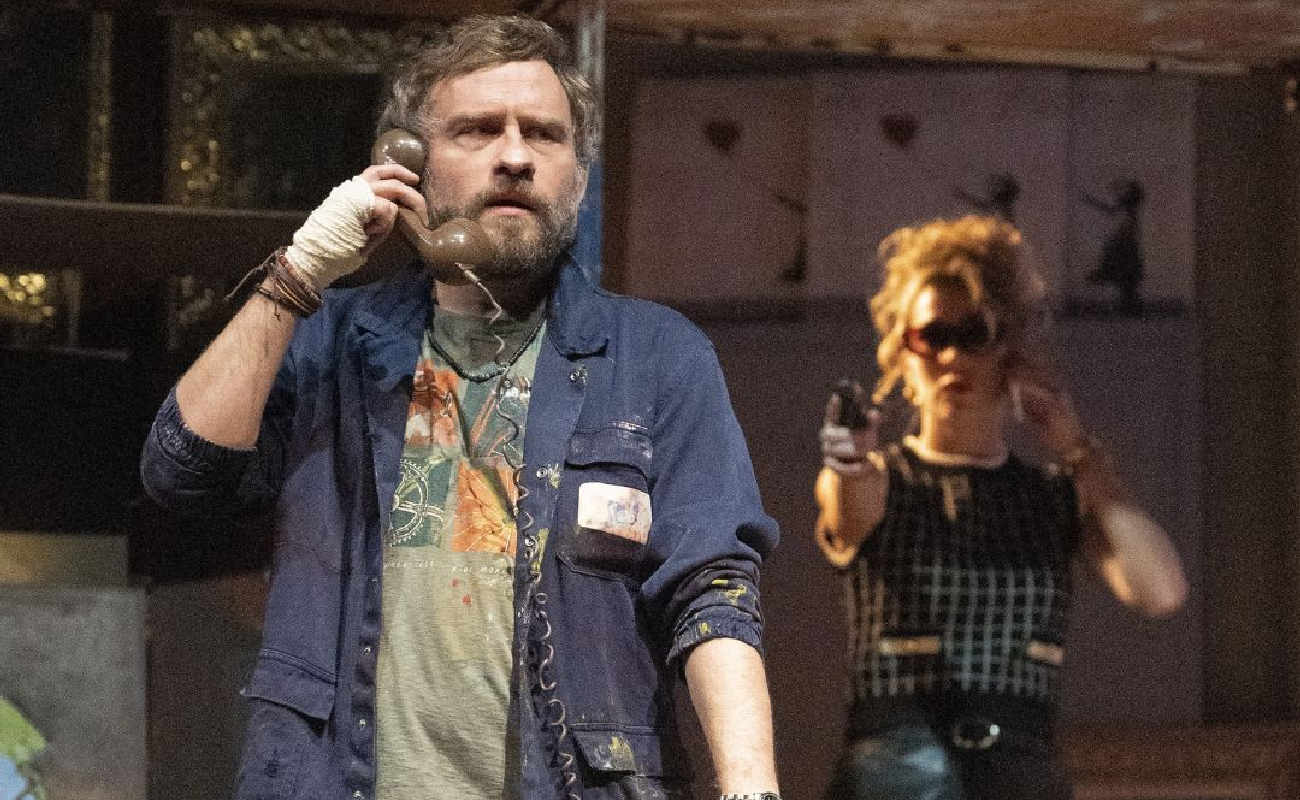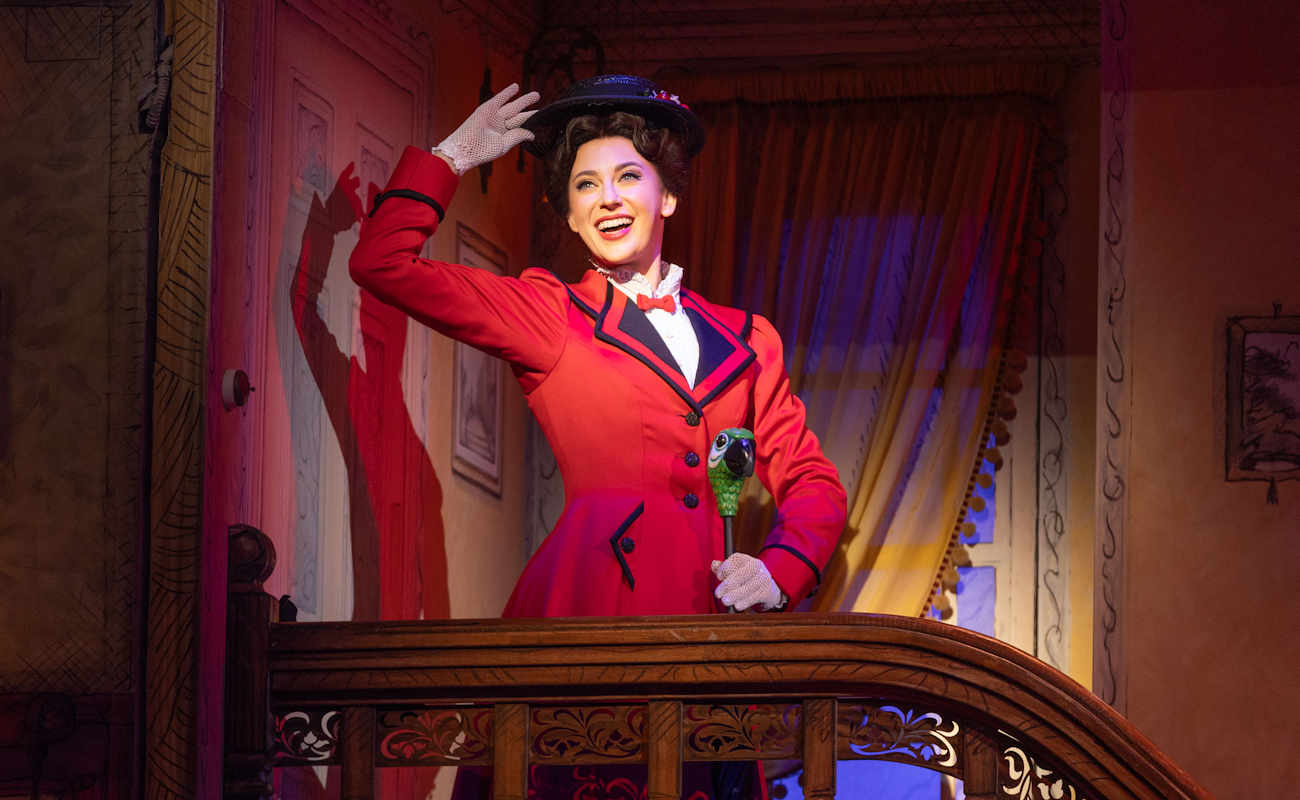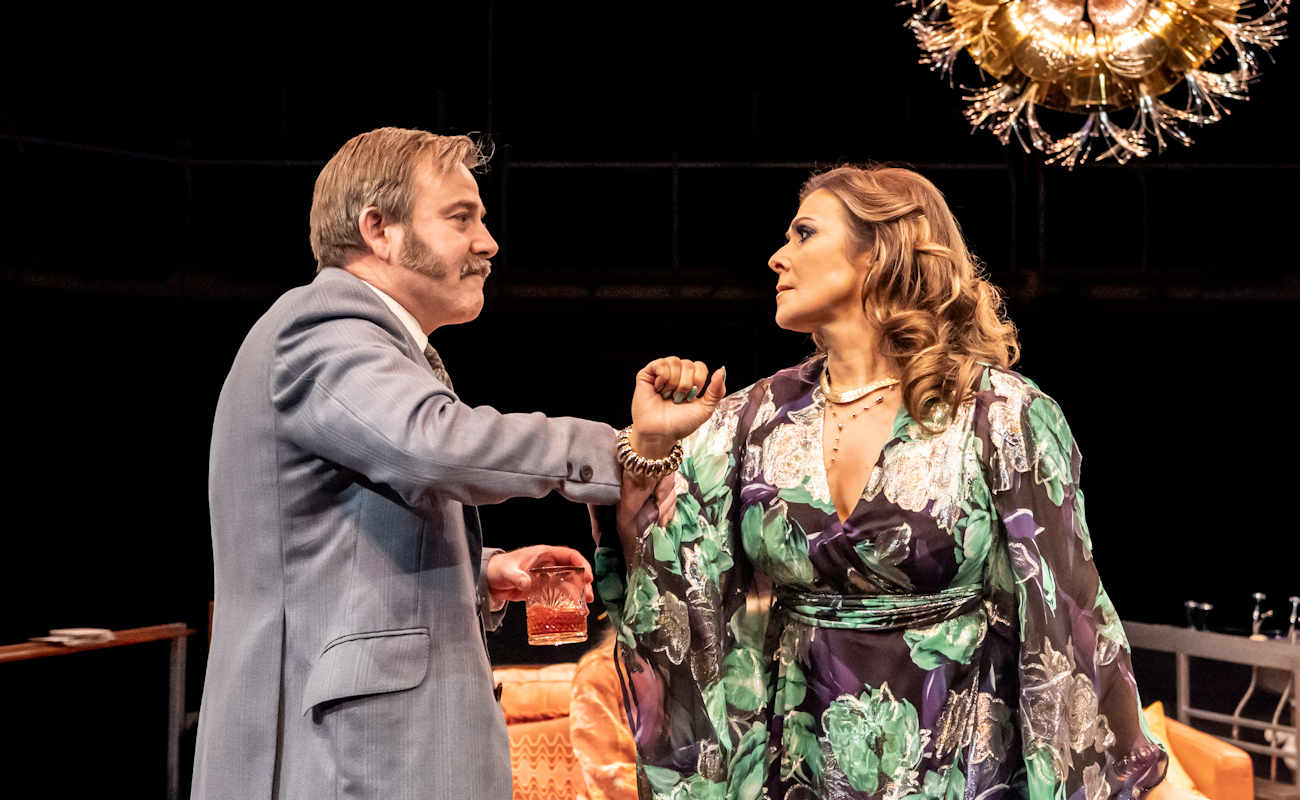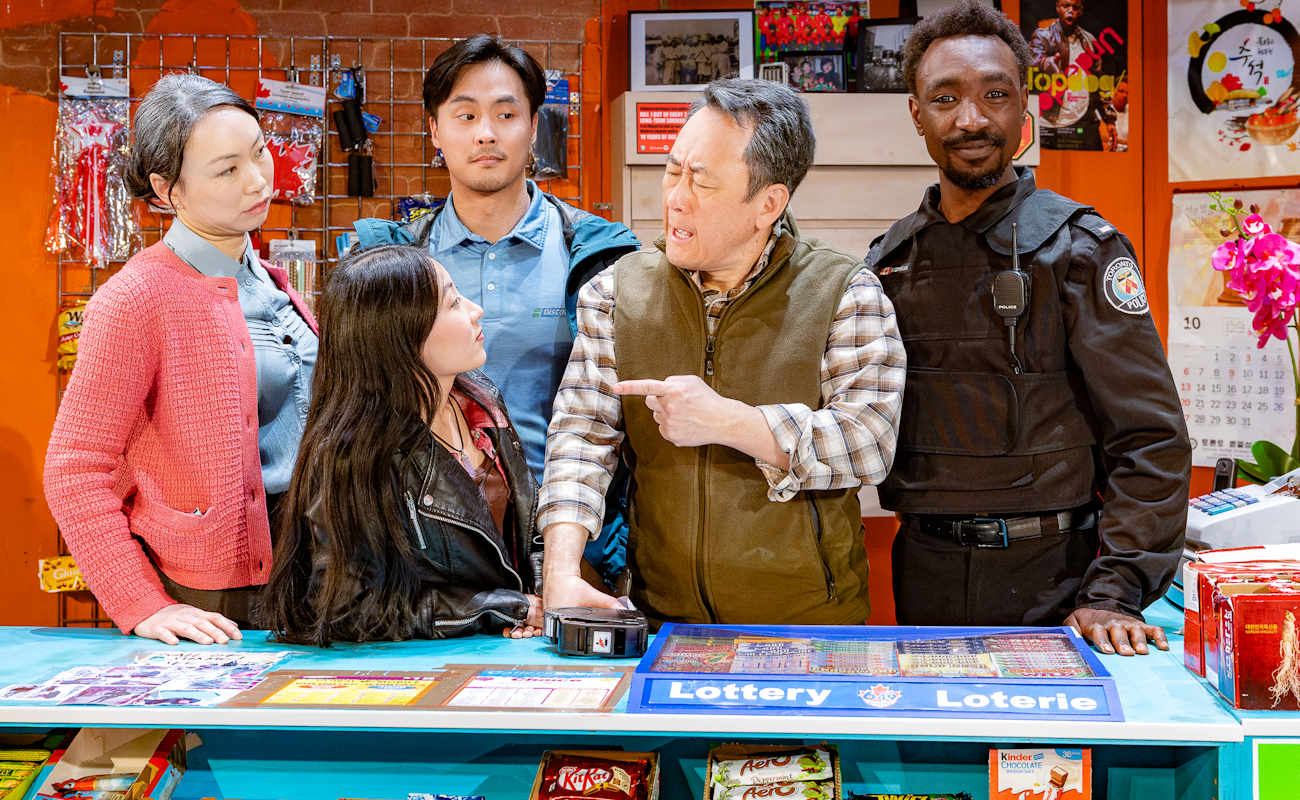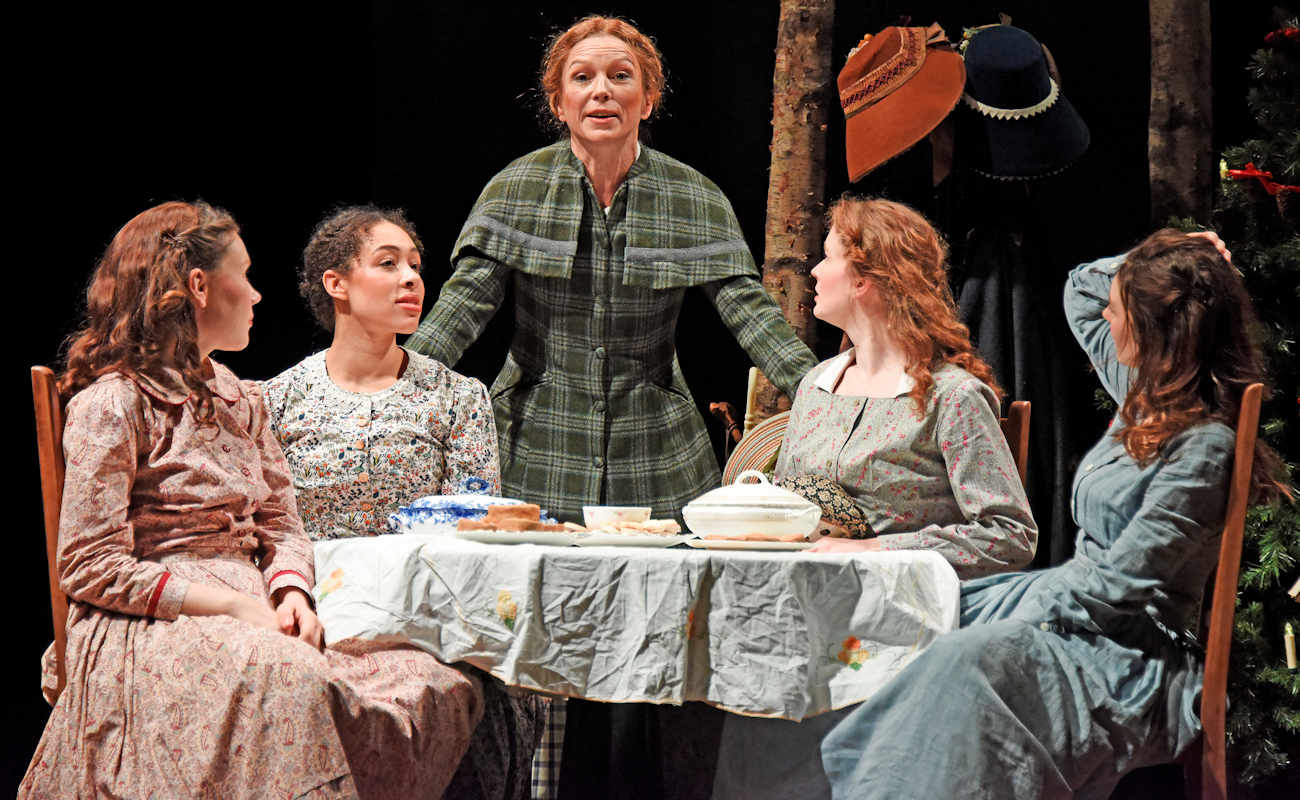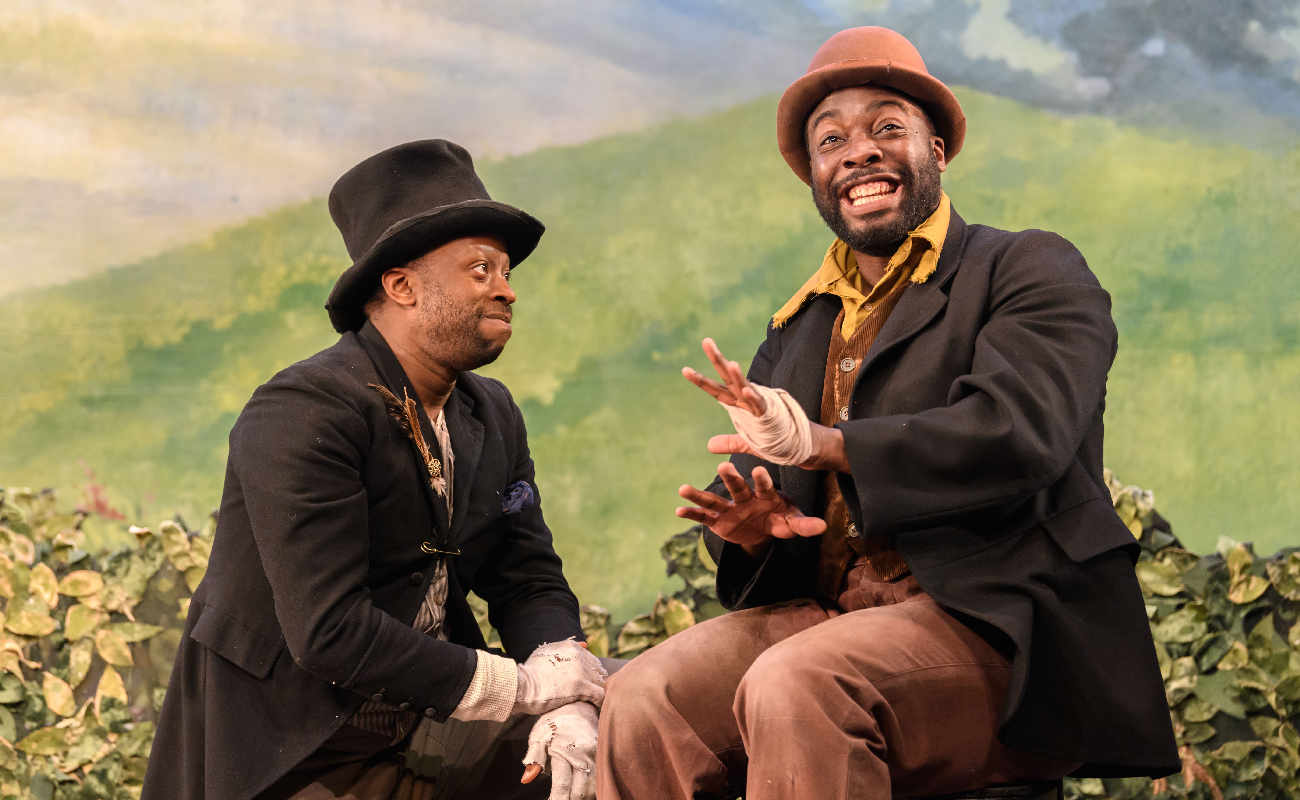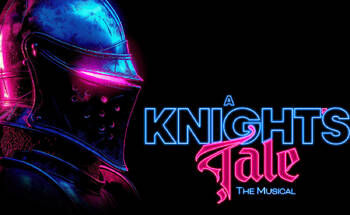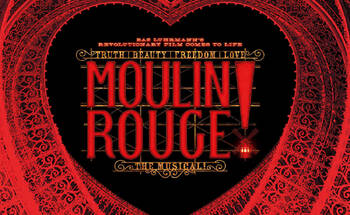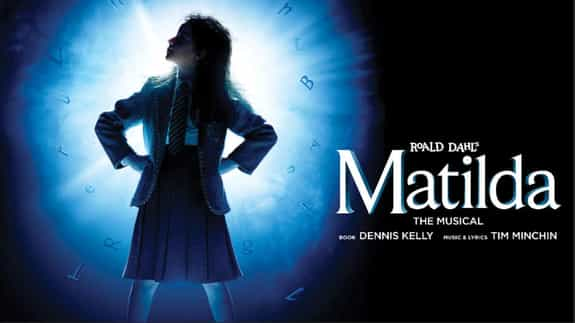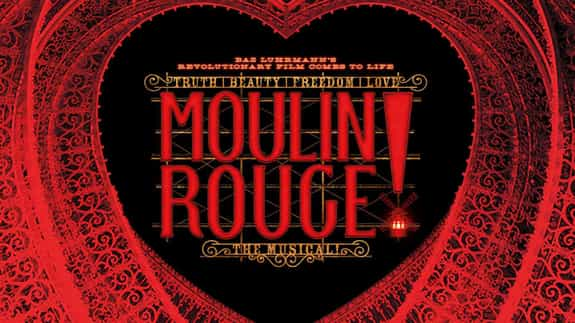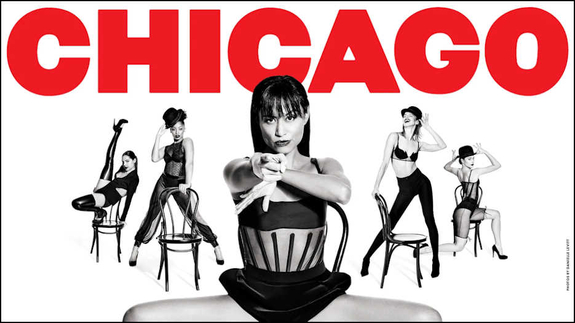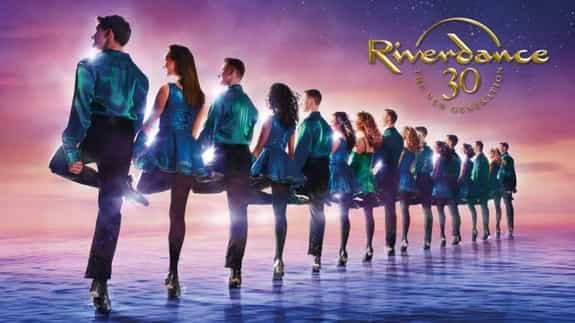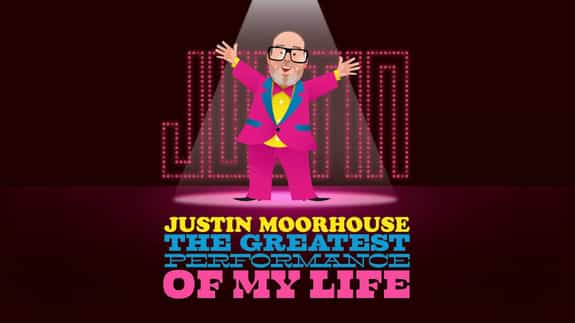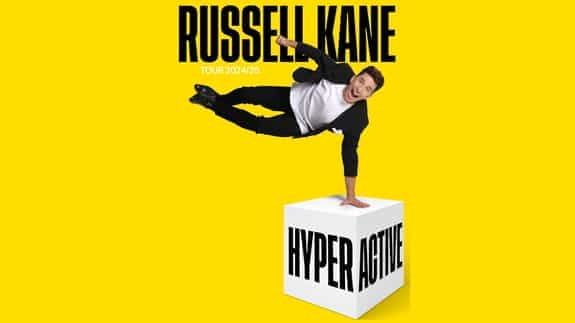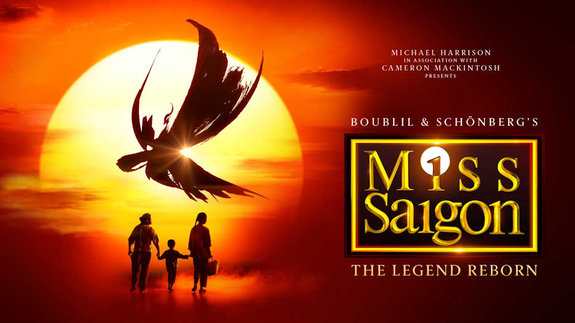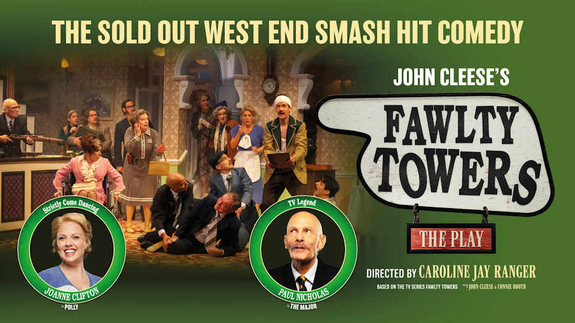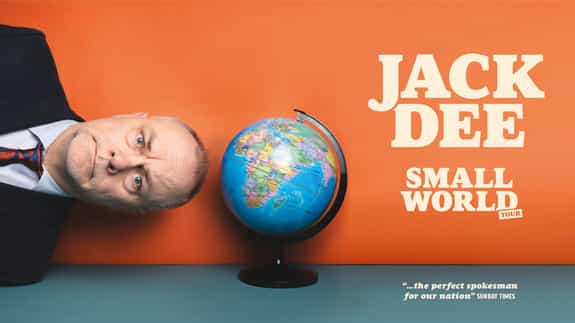The Beekeeper of Aleppo
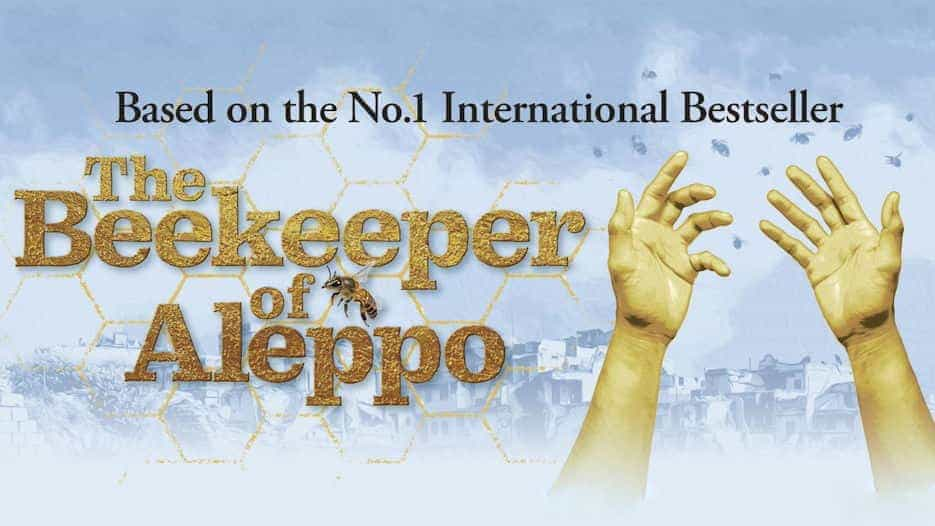
Winner of the Aspen Words Award, Runner up for the Dayton Literary Peace Prize, and one of The Times top three bestselling books of 2020, Christy Leftieri’s best-selling novel has its world premiere in a brand new adaptation by Nesrin Alrefaai, and Matthew Spangler who also adapted the hit West End and now Broadway stage version of The Kite Runner.
Nuri is a beekeeper; his wife, Afra, an artist. They live a simple life, rich in family and friends, in the beautiful Syrian city of Aleppo - until the unthinkable happens. When all they care for is destroyed by war, they are forced to escape. On their terrifying journey, they must face the pain of their own unbearable loss alongside incredible danger. Above all, they must journey to find each other again. This compassionate and beautiful play is a story of connection - between friends, families and strangers.
The Nottingham Playhouse production, proudly presented by Martin Dodd for UK Productions Ltd, will be directed by Olivier Award winning Miranda Cromwell (Death of a Salesman – Young Vic, Piccadilly Theatre and opening on Broadway in September).
The Beekeeper of Aleppo Tickets

Sorry, there are no tickets for The Beekeeper of Aleppo in Salford available at the moment. This maybe due to one of the following reasons:
- - The Beekeeper of Aleppo in Salford tickets are currently not on sale.
- - The event has sold out.
- - Details have not yet been announced for The Beekeeper of Aleppo in Salford.
- - The event may have been cancelled.
- - The event has been and gone.
Join our free mailing list for
updates about this event

The Beekeeper of Aleppo ON TOUR
Our review on The Beekeeper of Aleppo
The Beekeeper of Aleppo - The Lowry, Salford - Tuesday 18th April 2023 by Karen Ryder
Our Rating
THE BEEKEEPER OF ALEPPO IS AN EMOTIONAL STORY THAT IS DIFFICULT TO ACCEPT AS REALITY, BUT IT IS ONE THAT NEEDS TELLING
Not long ago, my friend told me about this incredible book. She described it as an intense yet unstoppable read. She couldn’t put it down for she was so invested in the characters and their journey. She said it was about refugees from Syria but followed the very real human story, not the political one. It turned the faces, the flashing images we see on the news into actual people, with jobs, families, passions, humour, hopes, dreams, and value. It shared their harrowing journey from a personal viewpoint and opened her eyes to the reality faced by refugees in a way that isn’t usually divulged on TV, human to human, mother to mother. That book was The Beekeeper Of Aleppo by Christy Lefteri, and as soon as she had finished it, I read it too. It made me smile, it made me cry, it made me angry, and it made me aware. In short, it made me feel and it educated me not only to the extent of the journeys being faced by refugees but to the power of illusion as escapism, and the lengths our own brain will go to in order to protect us from what we are not yet ready to face.
Adapted for stage by Nesrin Alrefaai and Matthew Spangler, The Beekeeper Of Aleppo introduces us to the regular, happy family of Nuri, Afra and their son Sami. Nuri works contentedly with his cousin Mustafa in Aleppo, as a beekeeper producing honey. Life is calm, life is happy, life is good. But war changes everything. Nuri witnesses some horrendous sights, has his apiaries burnt to the ground, and fears for his life. As Mustafa and his family flee, Nuri stays behind with his wife Afra who cannot leave the place where her son was taken from her. But soon, they have no choice and their own long, complicated, and indirect journey to Mustafa in England begins. There is no easy or fair path out of their war-torn land, and so it is only thanks to money and passports that they even stand a chance. They find themselves at the mercy of smugglers, strangers, charities, and criminals in a bid to survive, and live in an array of countries, cities, and conditions on route. They meet a host of characters, witness the best and worst of humanity, whilst traumatised themselves, so much so that they believe things that simply aren’t so. We know from the off that they make it to England as this is where we first meet Nuri and Afra as they await their asylum meeting, so the story isn’t one of hoping they will reach their destination, but hope that they will find each other again, even when they are right by each other’s sides. Our hope is that they will receive help, that they will see that help in each other, and that they can find a way to live again. It seems like a hopeless hope, but this story guides you to find light in the dark. As the timeline and blending of reality and escapism flits from the here and now, to the past, to everywhere in between, it demands your full attention and opens up a glimpse into the troubled mind of Nuri who is simply trying to make sense of how he has gone from being a proud dad and business owner, to someone who has had to do unfathomable things just for the right to survive.
Designer Ruby Pugh takes us from Aleppo, across the Middle East, and Europe, to England. A backdrop rises out of a sandy stage that allows images to be projected and blurs the sense of memory and dream. The neutral palette throughout reflects the links with nature and sparce furniture reflects the once family home of Nuri and Afra, whilst mirroring the little they have in other locations of their journey. Bright skies and the glory of the apiaries with honeycombed patterns contrast deeply against images of a bombed-out city, the same city that used to be so beautiful. The set is built intrinsically for the drifting of Nuri to and from multiple locations and is so subtle that you don’t even notice it until it is used as such in front of you. The curvature of an Aleppo landscaped rock reveals an armchair. An elevated bed is doubled up as a lifeboat, and the rocks themselves are included in some of the projected images, creating a dimensional moving landscape, which was particularly immersive and emotive during the lifeboat scene.
The Beekeeper Of Aleppo was always going to desire a cast of exemplary actors, but also empathetic actors who were humbly respectful of the characters’ trauma. The casting is tender, considerate, and full of talented, delicate performers who bring this human story alive. Each character has a unique and troubled way of dealing with their trauma, and this was brought together with clarity through the direction of Miranda Cromwell. Alfred Clay (The Comedy Of Errors, Troy Story, Two Cities) skilfully brings Nuri to life. He captures this traumatised and troubled character with such humanity that he establishes exactly what this story sets out to do, and that is to break the many fears, myths, and prejudices surrounding refugees. Clay blends the whirlwind linear, making the shifts crystal clear without ever over egging them. He guides us through Nuri’s mind, pitching his diverse existence with respect. Roxy Faridany (Magic Goes Wrong, Macbeth, This Is Going To Hurt) is equally respectful as Afra. Her trauma responds in a different way to Nuri’s and Faridany is able to portray this initial mental shut down without ever making Afra appear cold or unloving. That is not an easy fete but is achieved and highlighted further as Faridany takes Afra on a journey of strength. Her scenes with Nadia Williams as Angeliki are beautiful and through simple physical connections, she is able to show us the start of her healing. Joseph Long (Waiting For Godot, Peaky Blinders, Murder On The Orient Express) as both Mustafa and the Moroccan Man crafts two totally different characters, one full of love and hope, one full of silent pleading and gentle humour. As Mustafa, he provides Nuri with a reason to continue and his emotionally honest scenes really got me. He enabled Mustafa to show emotion where other characters couldn’t, yet he did so in a controlled and classy way. As Moroccan Man he used humour to cover up the heartache and anguish inside, presenting yet another way that trauma manifests. Elham Mahyoub (A Midsummer Night’s Dream, The Visit) as Mohammed / Sami was stunningly playful, innocent, and youthful is this grown-up world of horror and hate.
Ben Ormerod (lighting), Tingving Dong (sound), Elaha Soroor (music) and Ravi Deepres (film projections) combine to recreate the impossible in this theatre space, such as a dramatic storm at sea, Aleppo in all its beauty and then in its war-torn devastation. The multiple locations are symbolised through these outlets which lend themselves to creating atmosphere, whether that be desperation, desolation or delusion. A haunting song is echoed throughout, whilst the humming of the bees comes to represent a sense of calm and peace. Bombs are suggested through a synchronisation of sound, light and response, and establish atmosphere without disrupting the audience’s engagement by making them jump.
If you’ve read the book then you’ll appreciate that it bounds between timelines and different parts of Nuri’s world with the mere connection of a word, linking one memory to another, and back again to the here and now. This is all mixed in with a make-believe existence that his traumatic brain has manifested. I wondered if this would be reiterated on stage, and I am pleased to say it is, and it is done beautifully. Our brains don’t remember things in order. They do jump all over the place, and only reveal things when we are capable of facing them. Expressive dialogue, recorded inner thoughts, physicality, and choreographed moves all play their part and knot themselves together in a massed tangle that is reflective of Nuri’s mind. Movement to represent the passing of time is asserted with purpose throughout, from repetitive canons to continual directional movement and full use of the space to ensure the unimaginable length of the journey is reflected. However, life always allows us, if we choose, to find humour in the bleakest of situations. This is also a coping mechanism, and it is used with just the right amount of class and dignity in this production. In the asylum house in England, we meet Moroccan Man, who shows us what he thinks it is to be an authentic British Citizen. This lends itself to gentle mockery of the British, with him dressing up in Union Jack emblazoned clothing, and our ever so bizarre fashionista of socks with sandals! His reflections on the British culture provide some light relief, such as the weather, hot water bottles, calling everyone geezer, and of course our favourite British pastime – queuing!|
This adaptation to the stage is powerful and I feel very aware that this is not just a night out at the theatre. This is real. This is happening. There are real life Nuri’s, Afra’s, Mustafa’s, and Angeliki’s out there, fighting for the right to live without fear. There are real life people struggling to live with trauma, and not one of us is immune. The Beekeeper Of Aleppo is an emotional story that is difficult to accept as reality in today’s world, but it is one that needs telling. It is uncomfortable at times, as the truth often is, but I promise you, it is a story of strength, of love, of hope. It creates beauty out of desolation, comfort out of despair, and love out of hate. It shows us that for every unspeakable and vile human soul out there, ten more good souls outnumber them. After all, this story was born from a good soul. The soul of writer Christy Lefteri, whose own volunteer work in refugee centres sparked the idea of portraying refugees to the world as the people they were, the people they are, and the people they be again. They are not just as a nameless collective. They are identifiable as our own family members, our friends, as us. So, find humanity in their tale, find connection, and find your own way to bring darkness to the light.
WE SCORE THE BEEKEEPER OF ALEPPO...

